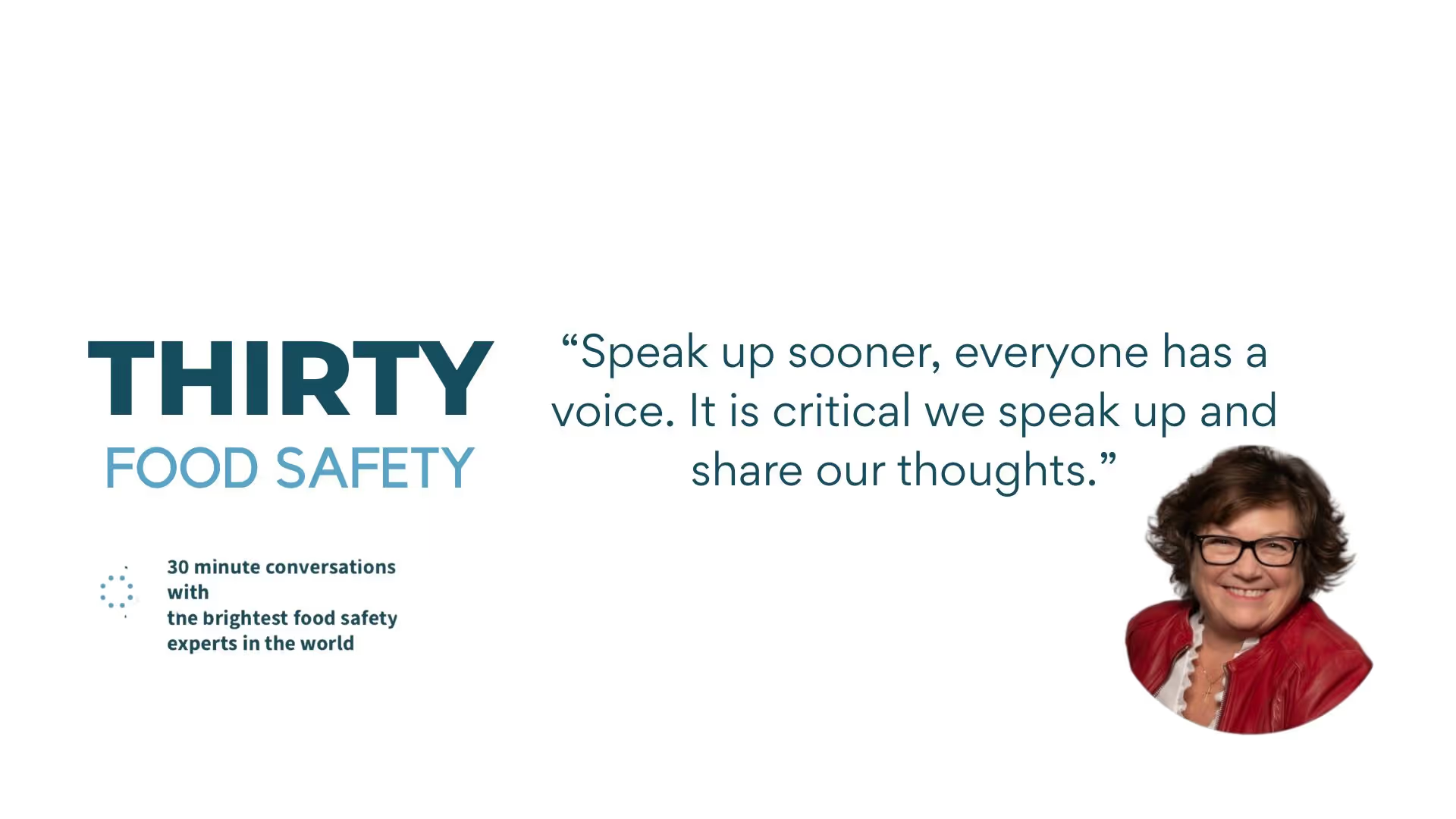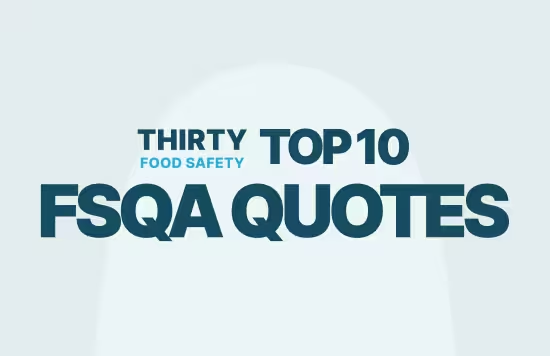

Sharon K.K. Beals on 30 Food Safety: Transforming Food Safety Culture from Factory Floors to C-Suites

Speak Up, Even If Your Voice Shakes
During the romaine lettuce recall, Sharon and her colleague pushed back against conventional wisdom. They argued for pulling all romaine, not just chopped and bagged. It wasn’t popular. But they laid out their thinking clearly and got executive buy-in. A week later, the outbreak was traced to whole heads—proving their call.
Early in her career, Sharon admits she held back. "I was the junior person. What if I said something stupid?" Now, she teaches others to speak up and practice the hard conversations in advance.
Falling Into Food Safety (and Loving It)
Sharon didn't plan to end up in food safety. She graduated from Cornell in 1980 with a degree in human nutrition and foods, aiming for R&D. But at a job fair, she stumbled into a meatpacking interview. When asked if she’d ever been inside a meat plant, she replied, "No, but I've seen Rocky twice. Does that count?" That sense of humor and honesty landed her the job.
From there, her career zigzagged: a beef plant in Milwaukee, potato salad production in Chicago, regulatory leadership roles, and eventually executive positions across major food companies like US Foods and Maple Leaf. Along the way, she picked up more than just technical skills—she became a culture builder, a translator between the factory floor and the C-suite, and a mentor to many.
Her advice to technical folks?
"We're not in this as a charity," she says. "Talk in terms of ROI." Even regulatory requirements need to be framed in terms of cost savings, brand trust, and shelf life. From a QC technician at a meatpacking plant in Indiana to president-elect of the American Meat Science Association, Sharon has lived through the evolution of food safety—and isn’t afraid to say where we still fall short. "If you take care of the people, they take care of the product, and the profits follow,"- Shannon K. K. Beals
Culture Eats Checklists for Breakfast
Ask Sharon about food safety, and she won’t start with regulations or HACCP. She'll talk about people.
One of her proudest moments? A breakthrough at a beef plant where a frontline worker said, "I'm making food for somebody's table." That, to Sharon, is what culture change looks like. It's not a sign on a wall—it's someone on the slaughter line connecting their work to a family dinner.
Daily huddles. Bite-sized training moments. Real-world stories. These are the tools she champions to win hearts and minds. "Sanitation is sanitation," she says. "Whether it's salami or cilantro."
Sharon's hot take? We're at risk of forgetting hard lessons.
"We've made so much progress. But 2023 scared me. It felt like we'd forgotten everything we learned." She points to the importance of institutional memory, war stories, and shared pain. When people haven’t lived through a major recall or outbreak, they may not feel the urgency.
She'd like to see more retrospectives, like a history of food safety session at industry summits. More stories, fewer PowerPoints. "You have to get to the heart, not just the brain."
Her advice to young QAs?
To the next generation of food safety leaders, her message is clear: find mentors and ask questions. "Suck out all the institutional knowledge you can," she says. "You don’t have to know everything. But your network will."
Sharon champions industry groups like the American Meat Science Association, IFT, and the Women's Meat Industry Network. Join committees. Attend workshops. Talk to people. "Network isn't a dirty word," she says. "It’s how we make sure the next person doesn’t have to learn the hard way."
Want more wisdom like this? Subscribe to 30 Food Safety and don’t miss the next interview.
FAQs
Why is food safety culture important?
Food safety culture is important because written programs alone do not prevent contamination or recalls. Strong culture ensures employees consistently follow food safety practices, supports regulatory compliance, improves audit outcomes, and reduces food safety risks.
.avif)





.avif)


.avif)


